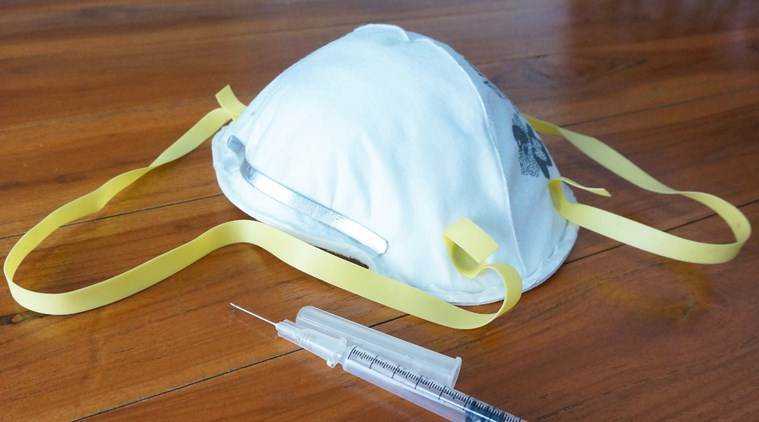 N-95, used as a protective gear, can filter particles as small as 0.3 microns. The novel coronavirus (nCov) outbreak in China has led to spike in the demand for N-95, or filtration masks.
N-95, used as a protective gear, can filter particles as small as 0.3 microns. The novel coronavirus (nCov) outbreak in China has led to spike in the demand for N-95, or filtration masks.
The ban on export of N-95 masks from India, in effect since 10 days, has not helped improve the supply chain in the domestic market even though manufacturers have increased production capacity.
N-95, used as a protective gear, can filter particles as small as 0.3 microns. The novel coronavirus (nCov) outbreak in China has led to spike in the demand for N-95, or filtration masks. Maharashtra health officials suspect masks are being hoarded and sold at higher price, but since masks and gloves are not part of ‘national list of essential medicines’, a price cap is not possible.
The state government has given a contract of 1.80 lakh masks to two firms — Magnum and Venus Safety and Health Pvt Ltd — for its district and rural hospitals.
The firms have increased their production shift to 24 hours for the last several days. “Earlier we would have 8-10 hours shift in a day,” said Rakesh Bharat from Magnum.
Gujarat-based Dharmik V Patel, who owns Wellnon, a mask manufacturing company, said their Surat unit produces 2-3 lakh masks every month, and is now expanding capacity by 50,000 more masks per month. “We have increased the run-time for machine by 2-3 hours, but we cannot immediately double the capacity,” he said.
Manufacturers scaling up production are also facing shortage of raw material. “Filtration material required for a mask is short in supply because of high demand,” said Vijay Patel, manager at Wellnon.
India has 9-12 key manufacturers for masks. It also imports masks from China. Since mid-January, supply from China has stopped and instead Indian manufacturers started exporting masks to Chinese market, where demand for N-95 remains high. On January 31, the Ministry of Commerce and Industry banned export of protective gear in order to first cater to government hospitals and Indian market. On February 8, the ministry lifted export ban on selected surgical and disposable masks and gloves, but continued the ban on N-95 and nitrile gloves. Nitrile gloves are nylon knitted gloves resistant to oil and chemicals.
Currently, online pharma portals — like 1MG, Netmeds, and Pharmeasy — remain out of N-95 stock. Prashant Tandon, CEO of 1MG, said since December the online sales of masks have shifted from pollution to N-95 masks. “Most leading manufacturers like 3M, Dettol, and Bodyguard are not supplying right now. They said the stock will come soon. After the export ban, it will take time to build inventories,” Tandon said.
Several chemists also said they have been asked by distributors to wait for a few more days for the stock. Imran Nagori, from Hindustan Pharma in Nagpada, said he sold 3,000 masks to a local businessman 10 days ago for supplying to China. “Since then I have had several customers but there is no supply,” he said.
Danish Shaikh, from Al Kareem Medicals, said he has no stock of masks left. “The demand has doubled due to coronavirus fear,” he said.
The Food and Drug Administration’s Joint Commissioner V K Biyani said he is holding meetings with manufacturers to smoothen supply of N-95 masks. “State cannot take action against hoarders or sellers for price hike until masks become an ‘essential commodity’,” he said.
In a press conference last week, Michale J Ryan, executive director of World Health Emergency Program, WHO, said, “We are seeing price increase a 100 times for some equipment. There is also an issue of availability.” WHO director Tedros Adhanom asked people from low-risk countries to avoid buying masks, stating high priority is given to health care workers treating infected coronavirus patients.